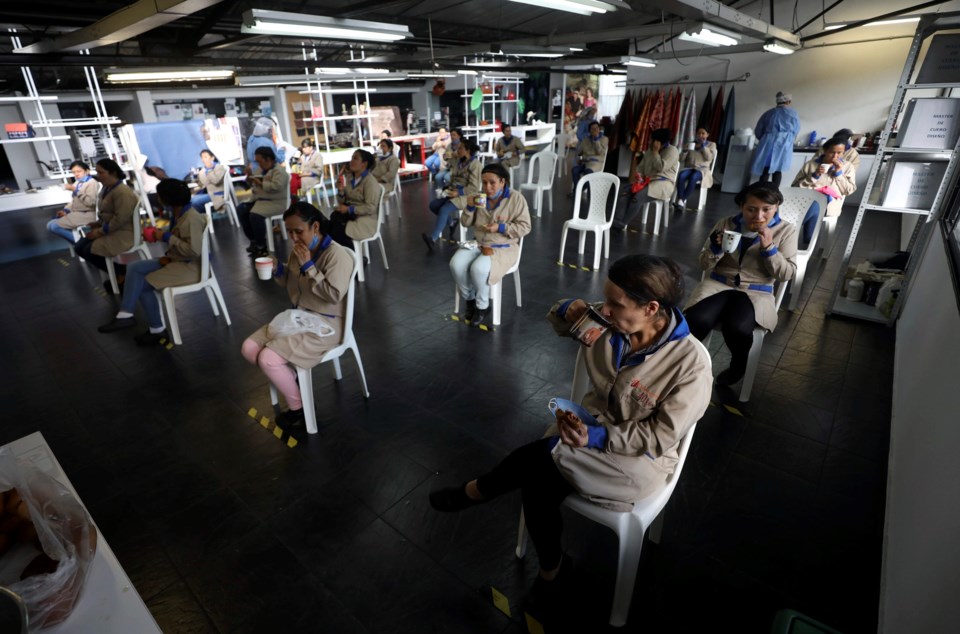Thousands of scientists around the world are working on problems raised by the COVID-19 pandemic. Here is a summary of some recent research from peer-reviewed academic journals and scientific agencies:
---
The Journal of the American Medical Association argues the value of closing schools to slow the spread of COVID-19 is debatable. While closures remain vital against other viruses, an editorial in the journal says the novel coronavirus doesn't seem to spread as quickly in children. It points out that Taiwan minimized the spread without extensive school closures. It says other studies have shown the effect of closures is too small to make much difference. It says keeping children home from school has significant economic and social impacts.
---
The Proceedings of the National Academy of Sciences has published research showing more evidence that droplets released during speech are likely to be a mode of coronavirus transmission. It finds loud speech can emit thousands of oral fluid droplets per second. In a closed environment, they linger in the air for between eight to 14 minutes. Researchers say the observations confirm there is a substantial probability that normal speaking causes airborne virus transmission in confined spaces.
---
Patients waiting for elective surgery will face longer waits all over the world because of COVID-19, says the British Journal of Surgery. It says more than 28 million elective surgeries across the globe could be cancelled as a result of the pandemic, based on a 12-week period of disruption. For every extra week, that waiting list grows longer by 2.4 million procedures. Orthopedic procedures will be cancelled most frequently, it says. The conclusions are based on information from 359 hospitals and 71 countries.
---
The British journal BMJ reports nearly 250 million people across Africa will catch the novel coronavirus during the first year of the pandemic and up to 190,000 of them are likely to die unless urgent action is taken. The journal warns that the associated rise in hospital admissions, care needs, and impact on other health conditions in the region would severely strain limited health resources and worsen the impact of the virus. It says the pandemic may spread more slowly in Africa, with fewer severe cases and deaths than in other parts of the world, but it is likely to linger for longer.
---
Research from Germany published in the journal Science shows that it took far-reaching physical-distancing rules to have an impact on the spread of COVID-19. The country made three interventions, beginning with a ban on public gatherings and ending with a contact restriction of no more than two people. Modelling shows the effect of each step showed up two weeks later, and only the third step made a significant difference. Researchers say their work points out the dangers of loosening restrictions too quickly, since the effect won't show up until two weeks later. They say rules should be lifted only when the number of active cases is so low that a two-week increase would not pose a serious threat to health-care infrastructure.
---
International research led by a team at the University of Toronto suggests the drug interferon can help COVID-19 patients recover faster. Interferons, first described in 1957, interfere with a virus's ability to replicate itself. They also boost the body's immune response. Research published in Frontiers in Immunology shows the drug reduced how long the virus stayed in the respiratory tract by about seven days. It also reduced blood levels of two inflammatory proteins found in COVID-19 patients. Conclusions are limited by a small sample size and the lack of a control group.
---
This report by The Canadian Press was first published May 16, 2020
Bob Weber, The Canadian Press



